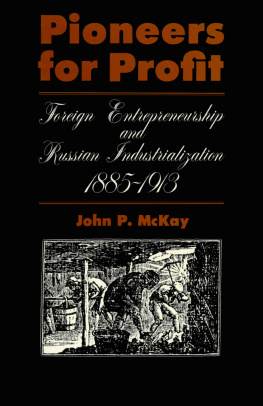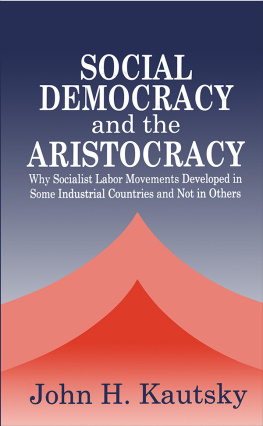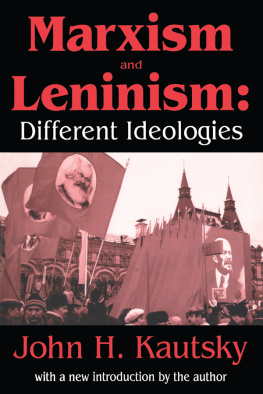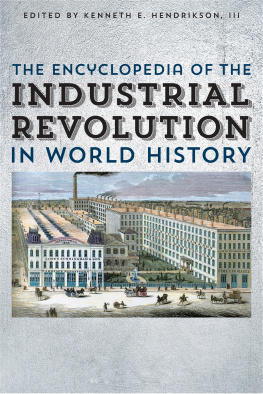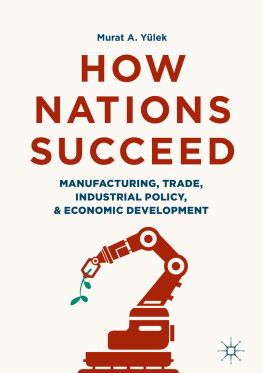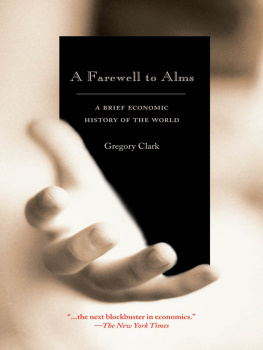Originally published in 1956 by John Wiley & Sons, Inc.
Published 2001 by Transaction Publishers
Published 2017 by Routledge
2 Park Square, Milton Park, Abingdon, Oxon, OX14 4RN
711 Third Avenue, New York, NY 10017, USA
Routledge is an imprint of the Taylor & Francis Group, an informa business
New material this edition copyright 2001 by Taylor & Francis.
, Industrialization, Ideologies, and Social Structure, is copyright 1959 by the American Sociological Association. Introduction copyright 1974 by the Regents of the University of California.
All rights reserved. No part of this book may be reprinted or reproduced or utilised in any form or by any electronic, mechanical, or other means, now known or hereafter invented, including photocopying and recording, or in any information storage or retrieval system, without permission in writing from the publishers.
Notice:
Product or corporate names may be trademarks or registered trademarks, and are used only for identification and explanation without intent to infringe.
Library of Congress Catalog Number: 99-087779
Library of Congress Cataloging-in-Publication Data
Bendix, Richard.
Work and authority in industry : managerial ideologies in the course of industrialization / Reinhard Bendix ; with a new introduction by Mauro F. Guilln.
p. cm.
Originally published: New York : Wiley, 1956. With new introd.
Includes bibliographical references and indexes.
ISBN 0-7658-0668-1 (paper : alk. paper)
1. Industrial managementHistory. 2. Industrial relationsHistory. 3. Labor movementHistory. 4. IndustrializationHistory. 5. Comparative management. 6. Comparative industrial relations. 7. Authority. 8. Social conflict. I. Title.
HD30.5 .B46 2000
658.4dc21dc21
99-087779
ISBN 13: 978-0-7658-0668-0 (pbk)
Publishers Note
The publisher has gone to great lengths to ensure the quality of this book but points out that some imperfections from the original may be apparent.
Work and Authority in Industry was written in the early 1950s and published in 1956. Out of print for several years, the book is now republished through the good offices of the University of California Press. This introduction (or should I say postscript?) gives me an opportunity to state in brief the thematic sequence of my work to date. Republication also allows me a personal reassessment of the intellectual choices I have made, and of their moral implications.
In deals with a reinterpretation of social protest in the era of industrialization. Part IV comments on the perspectives of Work and Authority in Industry and of Nation-Building and Citizenship in a more speculative vein along lines of inquiry in which I am engaged currently. And Part V attempts to state what my work has meant to me personally as well as intellectually.
I.
I begin with my M.A. dissertation, The Rise and Acceptance of German Sociology (1943) which was never published because it was too long, cumbersome and at crucial points unfinished. But in relation to my later work the thesis had a question worth noting. Written by a German refugee and in the midst of the war Hitler had unleashed, it asked a seemingly esoteric question. Taking sociology grosso modo as an attempt to approach social questions in a rational spirit, I wanted to know under what circumstances such an approach had been articulated within the German tradition and had eventually achieved institutional recognition in the universities. I do not think I answered the question. But the circumstantial, institutional, andyesirrational foundations of rationality haunt me still. It is a question now being debated with regard to the natural sciences, at long last. For me it was a question that had grown out of a reading of Nietzsche and out of my devotion to my father, a lawyer during the Weimar Republic who had sought to defend the rational core of the law by means of a head-on confrontation with its institutional and psychological value-ambiguities. My father called this complex of questions the multiple interpretability of facts and legal norms (die Mehrdeutigkeit von Tatsachen und Rechtssaetzen). Since I had learned much from him, it was natural for me to begin my career by investigating an analogous problem.
But in the circumstances of the day esoterica were not enough. I had escaped from the holocaust, but millions of others had perishedvictims not merely of personal tyranny but of a structure of authority bent on destruction. Hundreds of thousands had done the direct bidding of one mans commands (millions had followed suit) and in the process they had created a bastion of barbarism in the center of Europe. In this setting, why had government officials become such willing tools in the destruction of civilization? In Germany, officials had made a public display of their impartiality and legal rectitude. Yet under Hitler they had gone beyond mere compliance in their eagerness to follow the dictates of a criminal regime. By contrast, American civil servants at the federal level made few claims and were accorded little public recognition. Yet, despite the traditions of the spoils system and the short period of civil service reforms they appeared, on the whole, to act responsibly under the law. The questions implied in this contrast were too diffuse to fit within the empirical framework required of a Ph.D. dissertation in Sociology. So I divided my work between a broader historical discussion of the conditions of administrative rationality and a narrower, empirical inquiry into the social origins and careers of a sample of higher Federal administrators. Uneasily held together as these two parts of Higher Civil Servants in American Society (1949) remained, the study still exemplified that concern with the social conditioning of ideas and with the presuppositions of rationality with which I had begun.
At the same time, I had to recognize the disparity between the expectations of my teachers and peers in sociology and the penchant for a wider historical framework which derived from my German background. The impulse to write Work and Authority in Industry arose out of an effort to respond to that disparity. In a seemingly unrelated essay, Social Science and the Distrust of Reason (1951), I tried to wrestle with the dilemmas posed by the demand for empirical verification. Having studied at the University of Chicago in the waning years of the Chicago School of Sociology, I recognized the validity of that demand. But having a penchant for seeing immediate experience in a larger context, I also recognized that this demand had intellectual antecedents and a significance which did not seem apparent to my American colleagues. From the very beginning of modern science exhortations had been voiced against the effects of wishful thinking, against the unwitting influence of our education and converse with others, against the distortions arising from our use of words and from fashionable systems of thought. Basing myself on the seminal work of Hans Barth (Wahrheit und Ideologie, 1945), I traced this concern with idols of the mind from Bacon to Freud. In the process I re-discovered that in social thought the growth of reason consisted to a considerable extent in an increased understanding of human fallibility. A sisyphean principle of uncertainty seemed to be at work. Our efforts to control bias always remained a step behind our discovery of new sources of biasat any rate in the social sciences. In view of this historical record, an act of faith was required to continue the effort, a belief that further improvements in our methods would bring the desired control of bias. I thought this a reasonable faith and do so still, because no one knows what cannot be known. But it remains an act of faith and one that is peculiarly liable to spurious imitations of the natural sciences.


